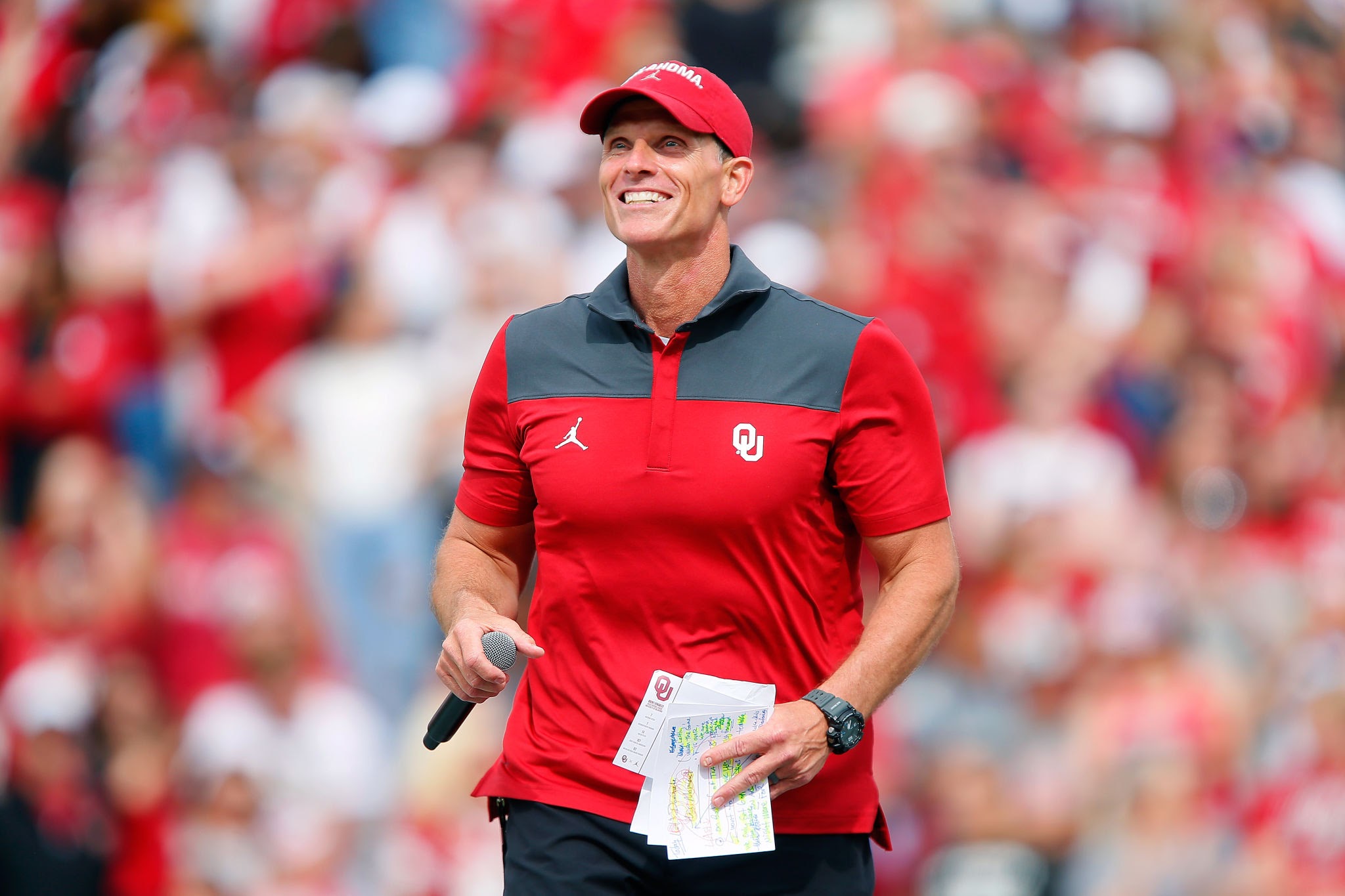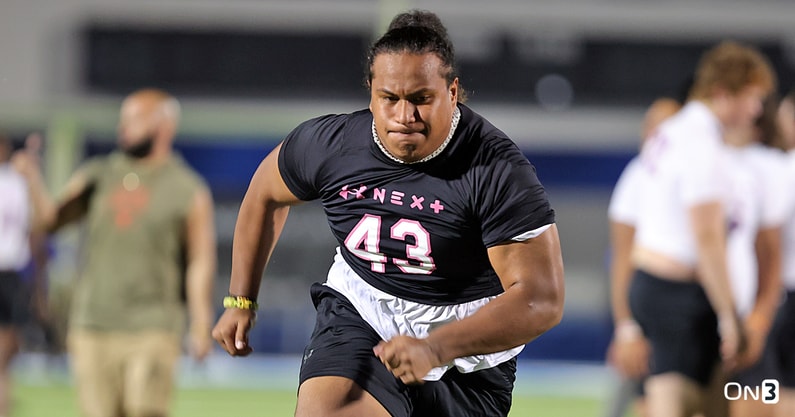
NORMAN — Jacob Lacey initially resisted accepting his doctor’s prognosis at Norman Regional, but soon reality sank in. In February, a recurrence of blood clots in his lungs dashed his hopes of participating in Oklahoma’s spring practice, marking an abrupt and unfortunate end to his college football career. Facing medical retirement before his anticipated final season, Lacey confronted a conclusion he dreaded yet ultimately came to terms with.
Reflecting on his situation in his first media appearance since announcing his retirement last month, Lacey admitted, “At first, I was in denial. I couldn’t believe it, honestly. I’m 23 now. I couldn’t fathom this happening again.” Despite his initial disbelief, the news hit him hard, and he accepted it with resilience.
Less than a year earlier, Lacey had already faced a similar ordeal. Last summer, he received a diagnosis of pulmonary embolisms after experiencing leg pain and breathlessness during his offseason training. The situation escalated when he coughed up blood during a flight to South Bend, Indiana, for a friend’s graduation at Notre Dame. Rushed to the hospital upon landing at 2 a.m., Lacey was told by doctors that he was lucky to be alive.
This episode cast uncertainty over Lacey’s future. Despite transferring to Oklahoma after the 2022 season with hopes of becoming a key player on the defensive line for the Sooners, the bout with blood clots threatened his aspirations. Following three months on blood thinners, he was eventually given the green light to return just a week before the season opener against Arkansas State. Remarkably, he not only rejoined the team but also started in all 12 remaining games of the season as a defensive tackle for OU.
In December, Lacey had made the decision to extend his time at Oklahoma for a sixth season, but his plans took an unexpected turn in late February. While participating in winter workouts that week, Lacey noticed blood in his saliva on February 20. Initially, he brushed it off, attributing it to a possible throat issue since his vital signs seemed normal. However, three days later, on February 23, he began experiencing pain in his left shoulder and lung area. By the morning of February 24, he struggled with shortness of breath and difficulty standing, indicating a more serious problem.
With none of his roommates present, Lacey summoned the strength to drive himself to the nearby Norman Regional facility off Tecumseh Road. Fortunately, he was promptly attended to by a doctor. Despite hoping the issue was merely related to his shoulder, Lacey faced the realization that something more serious was occurring.
The initial hope Lacey clung to quickly dissipated as reality sank in, dashing his aspirations of continuing his football career.
“At first, when the doctor mentioned it, I was in denial,” Lacey recounted. “But when the truth sank in, it was like a heavy blow. Mentally, I struggled to let go, but when the doctor explained that I’d need to remain on blood thinners for life, I knew football was no longer an option.”
Accepting this verdict was initially challenging, yet Lacey acknowledged the importance of prioritizing his health. His abrupt retirement was met with sorrow by Brent Venables, who described it as a “devastating blow.” Similarly, his fellow defensive tackles found it difficult to come to terms with the news. Lacey, not only the most seasoned player in the position group for the Sooners, but also a vocal leader, left a significant void.
“It hit hard because Lacey’s more than just a teammate; he’s like family,” shared defensive tackle Da’Jon Terry. “Since I arrived, he’s been there for me, guiding me through plays and workouts. Losing him from the team, especially in the weight room where we trained together, was tough to digest.”
“It was really painful. Honestly, it hit me hard, and I know it hit him too. Seeing him go through that was tough.”
Despite his premature exit from the field, Lacey has remained closely connected to the team since his medical retirement. He continues to be on scholarship and actively involved with the team during this spring season, taking on a role akin to a player-coach under defensive tackles coach Todd Bates. Leveraging his wealth of experience and expertise, Lacey provides guidance and mentorship to the remaining defensive tackles.
“He’s like having an extra coach,” remarked defensive tackle Gracen Halton. “He’s there to correct us not just on football stuff but also on other aspects of life. If we’re unsure about something, he’s the one we turn to.”
Despite facing adversity, Lacey chose to stay involved with the team because he believes he still has much to offer, even if it’s not on the field.
He aimed to contribute wherever possible, particularly in a defensive tackle position that lacked depth this spring due to the departure of key players like Isaiah Coe, Jonah Laulu, and Jordan Kelley, who were all vital contributors last season. While the team still has experienced players like Terry, Halton, and Davon Sears, there are also newcomers such as freshmen David Stone and Jayden Jackson, along with less seasoned players like Ashton Sanders and Markus Strong.

Despite facing challenges, Lacey refused to dwell on negativity, drawing from his own experience of overcoming adversity, notably during a hospital stay. Recognizing the importance of his role in supporting his teammates, he values the relationships within the team and aims to enhance the environment around him with the guidance of coaches like Bates and Venables.
Lacey’s presence during practice has been uplifting for his teammates and beneficial for the development of the team’s defensive tackles. While coaching wasn’t initially part of his plans, he hasn’t discounted the idea of pursuing it further, especially as he nears completion of his MBA program and already holds a degree in industrial design with a minor in business economics from Notre Dame.
As he explores various career paths off the field, Lacey remains open to the possibility of coaching, viewing it as a meaningful way to continue his football journey and contribute to the team’s success. Despite the differences from playing, he finds fulfillment in the opportunity to make a positive impact on his fellow players through coaching.
Leave a Reply